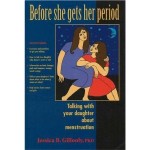Have you taught your kids Facebook etiquette?
It used to be when I was growing up girls could attend etiquette classes. You would learn how to properly fold a napkin and hold a fork, how to address thank you notes and your elders, and how to entertain your future husband’s coworkers. Now, etiquette has a whole new twist due to the explosion of social media sites. Parents of course hold the reins here, saying ‘no’ to your children about social media sites is a common practice. For those parents who do let their kids sign on to Facebook or other sites, it is imperative to teach your children proper etiquette for using the sites and to also protect themselves from misuse of the site by their Facebook friends.
Julie Weed in her article Parents should help teens take a critical look at Facebook offers tips from parenting experts on navigating the social media world with your teen and how to protect teens from the downsides of Facebook and other sites.
Social media has opened the world to kids at a level not imagined when I was growing up. However, with any social setting, it’s best to learn the proper etiquette to more fully enjoy the experience.





